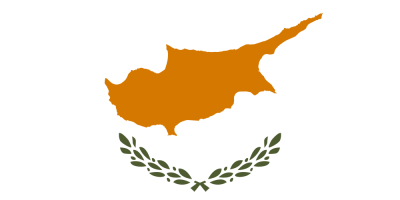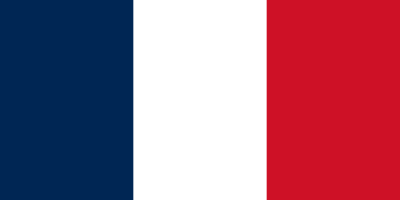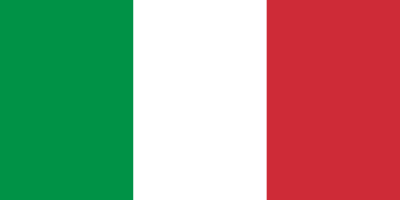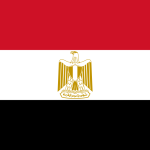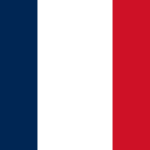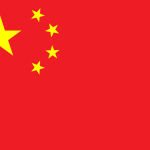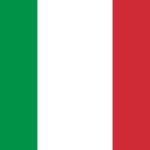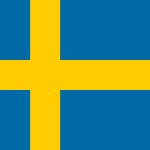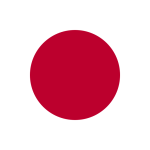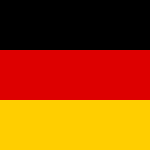Luxembourg flag color codes is composed of three horizontal bands of red, white, and light blue. These colors hold cultural significance for the people of Luxembourg and can be represented through various color coding systems. In this article, we provide Luxembourg flag color codes in HTML HEX, RGB, PANTONE, HSL, CMYK, HWB, and NCOL formats. Whether you need to match the Luxembourg flag colors for a web design project, printed materials, or textiles, these color codes will allow you to accurately reproduce the red, white, and blue shades of the Luxembourg flag. With the provided Luxembourg flag color codes, you’ll have what you need to pay tribute to this small but proud European country.
Table of Contents
What are the colors of Luxembourg flag?
The colors of the Luxembourg flag are:
- Red – The top horizontal band is red. This represents the red in the coat of arms of Luxembourg.
- White – The middle, wider horizontal band is white. This represents purity.
- Light blue – The bottom horizontal band is light blue. This represents the blue in the coat of arms of Luxembourg.
So in summary, the three colors of the flag of Luxembourg are red, white, and light blue. These three horizontal bands make up the national flag.
Luxembourg flag color codes & Color Names:
RED
| Color Model | Value |
|---|---|
| HTML | #EE2929 |
| HEX | RGB(238, 0, 0) |
| RGB | RGB(238, 0, 0) |
| PANTONE | 485 C |
| HSL | HSL(0, 85%, 47%) |
| CMYK | CMYK(0%, 100%, 100%, 7%) |
| HWB | HWB(0, 0, 7.8%) |
| NCOL | N/A |
WHITE
| Color Model | Value |
|---|---|
| HTML | #FFFFFF |
| HEX | RGB(255, 255, 255) |
| RGB | RGB(255, 255, 255) |
| PANTONE | N/A |
| HSL | HSL(0, 0%, 100%) |
| CMYK | CMYK(0%, 0%, 0%, 0%) |
| HWB | HWB(0, 100%, 0%) |
| NCOL | N/A |
BLUE
| Color Model | Value |
|---|---|
| HTML | #0073CF |
| HEX | RGB(0, 115, 207) |
| RGB | RGB(0, 115, 207) |
| PANTONE | 279 C |
| HSL | HSL(209, 100%, 40%) |
| CMYK | CMYK(100%, 44%, 0%, 19%) |
| HWB | HWB(209, 0%, 19.2%) |
| NCOL | N/A |
What is the meaning of colors in the Luxembourg flag?
The colors of the Luxembourg flag each have symbolic meaning:
- Red – The red band represents the red in the coat of arms of Luxembourg. Red is associated with courage, hardiness, and valor.
- White – The white band represents purity and peace. White exemplifies the nation’s desire for tranquility.
- Light Blue – The light blue band represents the blue in the coat of arms of Luxembourg. Blue represents vigilance, truth, loyalty, and perseverance.
So in summary:
- Red symbolizes bravery and strength
- White symbolizes purity and peace
- Light blue symbolizes vigilance, truth, and loyalty
The light blue, white, and red bands together represent the desire for a just, serene, and determined nation. The colors connect to Luxembourg’s national identity and coat of arms.
Explore More Flag Colors:
FAQs: Frequently Asked Questions:
Why is Luxembourg so famous?
Luxembourg, despite being a small country, is notable for several reasons:
Financial Hub: Luxembourg is renowned for its role as a major global financial center. It is home to many international financial institutions, including the European Investment Bank (EIB) and numerous private banking and investment firms. The country has a prosperous and stable economy, making it an attractive destination for businesses.
European Institutions: Luxembourg is one of the founding members of the European Union and hosts several key EU institutions. The European Court of Justice, the European Court of Auditors, and the Secretariat of the European Parliament are all based in Luxembourg, contributing to the country’s significance in the European political landscape.
Multilingual and Multicultural: Luxembourg has three official languages – Luxembourgish, French, and German. This linguistic diversity reflects its multicultural society. The country’s ability to function in multiple languages is a testament to its openness and international character.
Historical Significance: Luxembourg has a rich history that includes its role in European conflicts. The Luxembourg American Cemetery and Memorial, located near the capital, honors the thousands of American soldiers who fought in the Battle of the Bulge during World War II.
Quality of Life: Luxembourg consistently ranks high in global surveys measuring quality of life. It has a strong social security system, a high standard of living, and excellent healthcare and education systems.
Is Luxembourg expensive to live?
Yes, Luxembourg is generally considered one of the most expensive countries to live in. Several factors contribute to the high cost of living in Luxembourg:
High Incomes: Luxembourg has a high average income level, driven in part by its status as a financial hub and the presence of many multinational corporations. High incomes often lead to increased demand for goods and services, contributing to a higher cost of living.
Housing Costs: Accommodation costs, including rent and property prices, are significant contributors to the overall expense of living in Luxembourg. Housing in and around Luxembourg City, where many people work, tends to be particularly expensive.
Cost of Goods and Services: The prices of everyday goods and services, such as groceries, transportation, and dining out, are relatively high compared to many other European countries. Imported goods can be particularly expensive due to Luxembourg’s small size and the need to import a significant portion of its products.
How can I move to Luxembourg?
Here is a general guide to help you understand the steps involved in moving to Luxembourg:
1. Check Visa Requirements:
Determine whether you need a visa to enter and stay in Luxembourg. The visa requirements depend on your nationality and the purpose of your stay.
Visit the official website of the Ministry of Foreign and European Affairs of Luxembourg or the Luxembourg Embassy/Consulate in your country for the most up-to-date information.
2. Find Accommodation:
Start looking for accommodation in Luxembourg. The rental market, especially in Luxembourg City, can be competitive. Consider your budget and proximity to your workplace or other important amenities.
3. Secure Employment or Other Means of Support:
If you are moving for work, ensure that you have a job offer or employment contract. Luxembourg has a strong job market, particularly in finance, technology, and other sectors.
If you are relocating for reasons other than employment, ensure that you have sufficient financial means to support yourself.
4. Health Insurance:
Determine the healthcare requirements. Luxembourg has a mandatory health insurance system. If you are working, your employer may cover a portion of your health insurance costs.
Do they speak English in Luxembourg?
Yes, English is widely spoken in Luxembourg, particularly in business, education, and among the younger population. Luxembourg is a multilingual country with three official languages: Luxembourgish, French, and German. Additionally, many Luxembourgers are fluent in English.
How to get Luxembourg work visa?
Here is a general guide to help you understand the steps involved in obtaining a work visa for Luxembourg:
1. Determine the Appropriate Visa Type:
Identify the type of work visa that corresponds to your situation. The type of visa you need depends on factors such as your nationality, the duration of your stay, and the nature of your employment.
2. Job Offer and Employment Contract:
Secure a job offer from a Luxembourg employer. You will need a written employment contract specifying the terms and conditions of your employment.
3. Labor Market Impact Assessment (if applicable):
In some cases, your employer may need to obtain a Labor Market Impact Assessment (LMIA) to demonstrate that hiring a foreign worker will not negatively impact the local job market.
4. Work Authorization:
Your employer needs to apply for work authorization on your behalf. They will submit the necessary documents to the Luxembourg Immigration Directorate (Direction de l’Immigration).
5. Visa Application:
Once work authorization is granted, you can proceed to apply for a visa. Non-EU/EEA nationals typically need a long-stay visa (Type D) for employment purposes.
6. Required Documents:
Prepare the required documents, which may include:Passport with at least two blank pages.
Passport-size photos.
Proof of accommodation in Luxembourg.
Proof of health insurance.
Proof of financial means to support yourself.
7. Medical Examination (if applicable):
Some visa categories may require a medical examination. Check the specific requirements for your visa type.
What is Luxembourg rich for?
Luxembourg is considered wealthy for several reasons:
Financial Services: Luxembourg has established itself as a major global financial center. The country is home to a significant number of international banks, investment funds, and financial institutions. Its financial sector, including private banking and investment management, contributes substantially to Luxembourg’s economic wealth.
Steel Industry: Historically, Luxembourg was known for its thriving steel industry. While the steel industry is not as dominant as it once was, it played a crucial role in the country’s economic development, and remnants of this legacy can still be seen.
European Institutions: Luxembourg hosts several key institutions of the European Union, including the European Court of Justice, the European Investment Bank, and the Secretariat of the European Parliament. This not only contributes to the country’s economic prosperity but also positions Luxembourg as an important player in the European political landscape.
Stability and High Standard of Living: Luxembourg is known for its political stability, strong social security system, and high standard of living. These factors make it an attractive destination for businesses and individuals seeking a secure and comfortable environment.
Multinational Corporations: The presence of numerous multinational corporations and headquarters in Luxembourg contributes significantly to its wealth. Many companies choose Luxembourg as a base for their European operations due to its favorable business environment.
Diversified Economy: While financial services play a crucial role, Luxembourg has diversified its economy over the years. The country has embraced technology, innovation, and research, further contributing to its economic resilience.
Is it easy to get a job in Luxembourg?
The ease of getting a job in Luxembourg can vary depending on several factors, including your skills, qualifications, language proficiency, and the specific industry or sector you are targeting. Here are some key points to consider:
Job Market:
Luxembourg has a relatively strong job market, particularly in sectors such as finance, technology, and European institutions. The financial sector, in particular, is a major driver of employment in the country.
Language Skills:
English is widely used in business and is often a requirement in many multinational companies. However, proficiency in French, German, or Luxembourgish can significantly enhance your job prospects, especially for roles that involve interactions with local clients or colleagues.
Qualifications and Skills:
Having relevant qualifications and skills that match the needs of the job market is crucial. Luxembourg values highly skilled professionals, and certain industries may have specific requirements.
Networking:
Networking is important in Luxembourg. Building connections through professional networks, events, and online platforms can help you discover job opportunities and make your job search more effective.
Industry Focus:
The financial and banking sector is a major employer in Luxembourg, with many international institutions having a presence in the country. Additionally, the technology and research sectors have been growing, offering opportunities for skilled professionals.
How much is salary in Luxembourg?
Minimum Wage: Luxembourg has one of the highest minimum wages in the European Union. The statutory minimum wage is regularly adjusted. As of January 2022, it was around €12.51 per hour.
Average Gross Salary: The average gross salary in Luxembourg is well above the European average. It can vary significantly depending on the industry and job role. Professionals in finance, technology, and senior management positions often command higher salaries.
Banking and Finance: Jobs in the financial sector, given Luxembourg’s status as a financial center, generally offer competitive salaries. Roles in banking, investment management, and related fields can be well-remunerated.
Technology and IT: Professionals in the technology sector, especially those with expertise in areas such as IT, software development, and data science, often receive competitive salaries.
Management and Senior Positions: Executive and senior management positions tend to have higher salary levels.
Language Skills: Proficiency in multiple languages, particularly English, French, and German, can positively impact salary levels.

